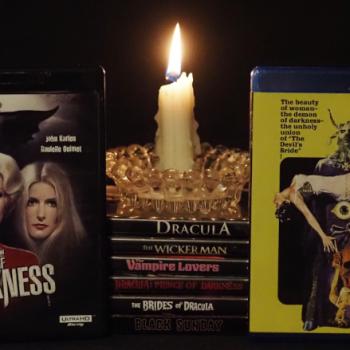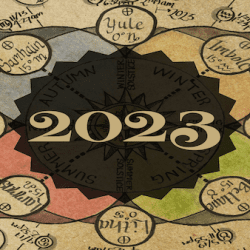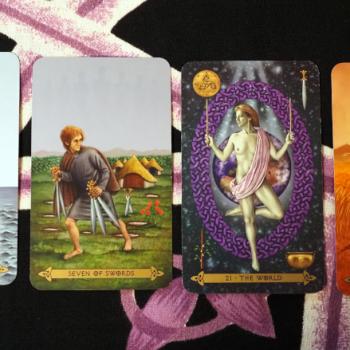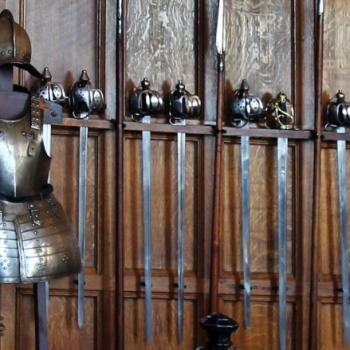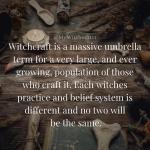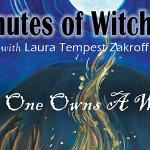Ryan Burge is a professor of political science and also a pastor in the American Baptist Church. He has a Substack (some free, some paid) where he discusses the results of various surveys and studies on the state of religion in contemporary society. He is not a disinterested observer, but he is honest about the data and what it says. Earlier this week he had a post titled Liberals Have Won the Culture War.
As a liberal who is still very much fighting the culture war – in Texas – I think his proclamation is a little premature. The structure of American government (federalism, the Electoral College, the Senate, gerrymandering) favors conservatism, and thanks to McConnell and Trump the courts are moving us backwards. Still, Western culture in general and American culture in particular have become more liberal over the past 20 years or so. The recent rash of book banning, anti-trans, and “don’t say gay” laws are the desperate last stand of cultural conservatives who know they’re losing.
It remains to be seen whether liberals and other people of good will can generate the political will to vote bigots and fascists out of office, and to sustain that political will for long enough to effect permanent change.
(Note: being a cultural conservative does not make you a bigot and a fascist. Trying to use the power of government to force others to conform to your preferred culture does.)
Here’s what I find interesting – and encouraging – in Burge’s data analysis:
Why is this happening? One culprit is a simple one: the United States is becoming a heck of a lot less religious and the nones are socially liberal … but that is not the primary reason for the overall leftward shift on social issues. Instead, even religious people are becoming more left leaning on these types of issues.
Here’s one very relevant example:
In 2004, just 12% of evangelicals were in favor of same-sex marriage. It was 22% of younger evangelicals. By 2021, 35% of evangelicals were in favor, including a majority (56%) of those between the ages of 18 and 35 [emphasis mine]. It seems inevitable that a majority of evangelicals will support same sex marriage in the next two decades.
At the end of the post, Burge takes off his social scientist hat and puts on his pastor hat.
Pastors, why can’t you convince people to hold to the sexual ethic that your churches have been teaching for decades? How in the world has evangelical support for same sex marriage risen above fifty percent among young adults, when a trademark belief of evangelicalism is a rejection of same-sex relationships?
I can only hazard a guess that culture plays a bigger role in the lives of most Americans than religion. (I say this as a pastor who is becoming painfully aware of his limited amount of influence, by the way). Why aren’t religious leaders able to convince people to stick with the clear beliefs of their church tradition?
These are the questions I want to explore, both from a wide viewpoint and from our perspective as Pagans.
Culture and religion are always intertwined
Burge is absolutely right when he guesses that culture is more influential than religion. But that ignores the fact that culture and religion are intertwined.
The contemporary West has the idea that religion is all about what you believe: about divinity, about sacred texts, about what happens after death. But for most people throughout most of the world throughout most of history, religion was and is about what you do, who you are, and whose you are. What you think about various supernatural propositions is less important – perhaps even unimportant.
We see this in our own Pagan religions, both ancient and new. There is no credal test to dance the Maypole. If you pour an offering to Brighid, I don’t care if you’re offering to the Goddess, to the saint, or to the personification of poetry, smithcraft, and healing. What I care about is that you’re acknowledging and honoring Brighid.
We also see it in other religions. The white Christian nationalists are practicing a religion that has very little to with either the teachings of Jesus or with historical Christian traditions. Their religion is focused on returning to the culture and politics of the United States in 1850 or so.
Contemporary Western culture is the product of a diverse and interconnected world. It’s hard to demonize other religions when most of us work or go to school with people who follow them – people who are our friends. American attitudes on LGBTQ people changed rapidly when LGBTQ people started coming out. My own attitudes changed when a new job put me working closely with a gay man for the first time in my life.
Religion and culture are intertwined, and so changes in culture create changes in religion.
Cultural conservatism goes against Nature
Conservatives like to talk about “Natural Law” – the idea that certain moral and ethical principles can be deduced from Nature and from our experiences. The idea has merit. We don’t need some divine lawgiver to tell us that murder is bad – we see the results of murder and we’re perfectly capable of reaching that conclusion on our own.
Our problem is that many of us struggle to separate “what is bad” from “what I don’t like.” And we often fail to realize that ethical standards and cultural norms that are appropriate and even necessary for one place and time may be inappropriate and harmful for another. A species on the verge of extinction needs all the children it can get – it’s no wonder that “traditional” sexual ethics are wrapped up in procreation. But for a species that’s overrunning the carrying capacity of its environment, sexual practices that don’t result in children aren’t just permissible, they’re better.
As an aside, beware those who preach against falling birth rates. Their interests are likely at odds with yours.
Additionally, cultural conservatives ignore the fact that Nature is not black and white but a rainbow of many colors. What is true in the middle is often false on the edges: sexual orientation and gender identity are only the most obvious examples.
Beyond that, people are yearning to be free not just politically and religiously, but in every aspect of their lives.
Conformity is unnatural.
Cultural conservatism requires constant enforcement
And because conformity is unnatural, it requires constant enforcement and reinforcement. Left to themselves, people conduct their lives in the ways that seem right to them.
Most people don’t believe extramarital sex is always wrong, that same sex marriage is wrong, that marijuana use is wrong, or that porn should be illegal. And while Americans’ views on abortion are varied and complicated, a clear majority want it to remain legal in most cases.
When Ryan Burge bemoans his “limited amount of influence” he overlooks the fact that unlike his predecessors in the clergy, he has no power to enforce his proclamations. He can’t force people to attend his church, much less to wear a Scarlet Letter if they violate his sexual morals.
I don’t think Burge would do that, or even that he wants to. But his predecessors could and did and that was a major source of their “persuasive” power.
He can’t even threaten them with eternal damnation, because a growing number of people don’t believe it exists.
This is why conservatives are resorting to bigoted and abusive laws. They can’t win in the marketplace of ideas, so they’re trying to use the power of government to force conformity.
Good religion is living religion
Burge quotes Malachi 3:6, which says “For I am the Lord, I change not.” Whether or not Gods change is a debate not just among Christians, but also among Pagans. Many Neoplatonists argue that the Gods are perfect that therefore never change.
[More than a little Neoplatonism made its way into Christianity – they don’t teach that in Sunday School. Or in Wicca 101.]
My own thinking is that while the essence of who and what the Gods are is constant, ultimately They are living persons and all living persons change over time.
But even if I’m wrong and the Gods don’t change, we do. Our relationships with the Gods change. Our environment changes. Our needs and the needs of the wider world change.
Virtues are timeless. Our expression of those virtues must change with the times.
Creating change according to Will
My issue with the culture isn’t that it’s changing, it’s that it’s not changing fast enough, or widely enough. I want the law to be neutral in questions of culture, protecting the rights of individuals to conform or dissent as they see fit, so long as they do not force or coerce others.
But I am not neutral. I want to live in a society where my own Pagan culture isn’t just accepted, it’s the norm. I want to build a truly Pagan culture.
If a Baptist pastor has a limited amount of influence, then a Pagan Druid has even less.
But I – we – have tools the mainstream culture does not.
We have the magic of story and song and the visual arts. We have the magic of candles and herbs and stones. We have the magic of invocation and energy and sigils.
We have the magic of knowing, willing, daring, and keeping silence.
We have the ability to change the culture, not by passing laws to demand other do as we do, but by showing the world a better way to live.
Starting with ourselves.







